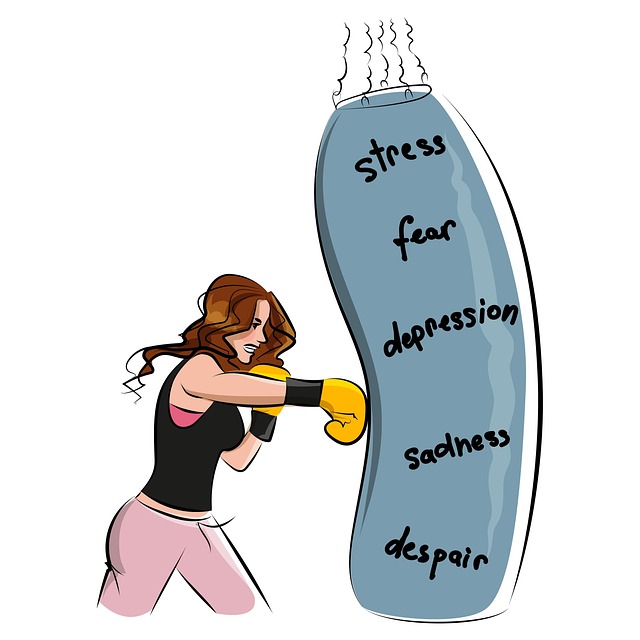Podcasting offers a powerful tool to combat domestic violence's mental health impact by raising awareness, destigmatizing the issue, and providing support through therapy discussions. A well-structured podcast series on "Therapy for Domestic Violence" educates listeners about risk assessment tools, promotes stress reduction techniques, and offers therapeutic value through expert interviews and personal stories. It aims to foster resilience in victims, their families, and children by sharing evidence-based information with sensitivity, incorporating diverse perspectives, and providing practical self-help strategies, ultimately enhancing mental wellness and community understanding.
“Unveiling the power of mental wellness podcasts, this series delves into the intricate relationship between domestic violence and mental health. With a focus on providing support and awareness, we explore how audio storytelling can heal and empower.
From conceptualizing episodes to ethical content creation, this guide navigates the process of producing an engaging podcast series. Learn about developing sensitive discussions on therapy, ensuring accuracy, and crafting narratives that resonate with listeners seeking healing from domestic violence.”
- Understanding the Need: Exploring the Impact of Domestic Violence on Mental Health
- Creating a Podcast Series: From Concept to Content Development
- Ensuring Sensitivity and Accuracy: Ethical Considerations for Therapy Discussions
- Production Techniques: Crafting Engaging Episodes for Supportive Listeners
Understanding the Need: Exploring the Impact of Domestic Violence on Mental Health

Domestic violence is a significant, often hidden, contributor to mental health challenges. Its impact can be profound and far-reaching, affecting individuals across all demographics. From anxiety and depression to post-traumatic stress disorder (PTSD), the psychological effects of experiencing or witnessing domestic abuse are well-documented. This complex issue does not just affect the victim; it has a cascading effect on their support networks, including children and other family members.
Addressing domestic violence through dedicated mental wellness podcasts offers a valuable platform to increase mental health awareness. These conversations can help destigmatize the topic, encouraging victims to seek therapy for domestic violence and access available resources. Moreover, such podcasts can educate listeners about risk assessment tools for mental health professionals, enabling them to identify potential cases and offer appropriate support. By exploring these topics, podcast series contribute to broader stress reduction methods, promoting resilience and recovery in those affected by domestic violence.
Creating a Podcast Series: From Concept to Content Development

Creating a podcast series on mental wellness is an exciting endeavor that requires careful planning and content development. The process begins with a clear concept and understanding of the target audience’s needs. For instance, considering themes like “Therapy for Domestic Violence” can be both impactful and informative, offering valuable insights and support to those affected. This niche focus within mental wellness podcasting allows for in-depth discussions and expert interviews that cater to a specific community.
As you develop content, integrating practical strategies and real-world examples is essential. The goal is to create an engaging and therapeutic experience for listeners. Incorporating segments like “Stress Management Workshops” or providing “Crisis Intervention Guidance” within episodes can add immense value. By combining expert advice, personal stories, and interactive elements, the podcast series becomes a comprehensive resource for enhancing mental wellness and navigating challenges related to domestic violence.
Ensuring Sensitivity and Accuracy: Ethical Considerations for Therapy Discussions

When producing a mental wellness podcast series that delves into sensitive topics such as therapy for domestic violence, it’s paramount to approach discussions with utmost sensitivity and accuracy. Ethical considerations are non-negotiable to foster a safe and supportive environment for listeners who may be dealing with similar issues. This includes ensuring the information shared is evidence-based, avoiding stigmatization, and presenting diverse perspectives from experts in the field.
Incorporating emotional intelligence into the podcast’s narrative can help listeners process difficult emotions and understand their experiences. Mental wellness journaling exercise guidance can also be woven into episodes to empower individuals to track their progress and reflect on insights gained. Additionally, designing mental health education programs around these discussions can provide a comprehensive learning experience for those seeking to improve their mental wellness and navigate challenging situations.
Production Techniques: Crafting Engaging Episodes for Supportive Listeners

Producing a podcast series on mental wellness requires a thoughtful approach to engage listeners and provide them with valuable content. When crafting episodes, particularly focusing on sensitive topics like therapy for domestic violence, it’s essential to maintain a balance between providing useful information and ensuring the content is therapeutic for your audience. Incorporate storytelling techniques that allow listeners to connect with personal narratives, fostering a sense of community and understanding.
Each episode should be meticulously planned, including interviews with experts in mental health, domestic violence survivors, or both. This format not only offers diverse perspectives but also enhances mental health awareness by normalizing conversations around difficult subjects. Integrate practical tips and exercises that listeners can implement in their daily lives, such as self-awareness exercises and strategies for building self-esteem improvement. Ensure the episodes are structured with a clear introduction, engaging segments, and a satisfying conclusion to encourage listeners to return for more.
In conclusion, producing a mental wellness podcast series on therapy for domestic violence can be a powerful tool for raising awareness and offering support. By understanding the impact of this issue on mental health, developing engaging content, and prioritizing sensitivity, creators can make a significant difference in the lives of survivors and advocates alike. Through thoughtful production techniques, this medium enables meaningful conversations and fosters healing in communities affected by domestic violence.









